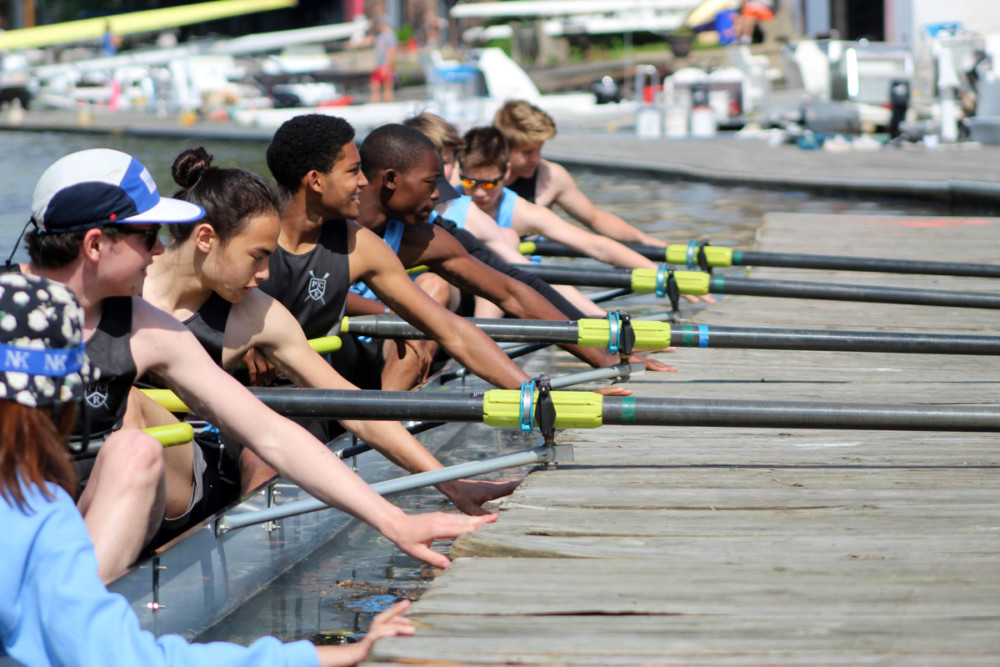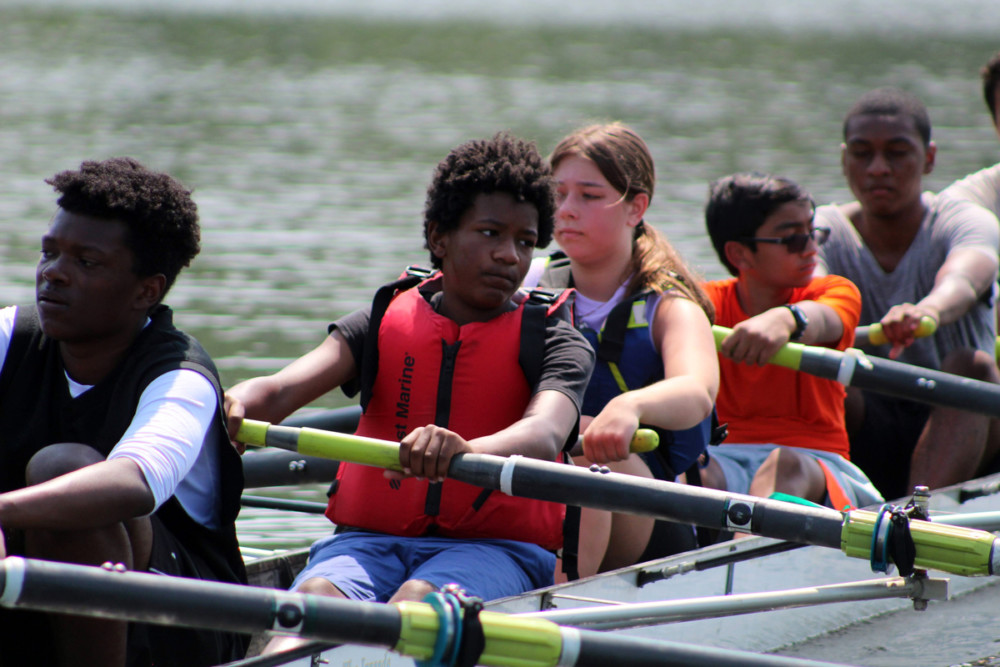
Meet: Philadelphia City Rowing (PCR), the local nonprofit teaching children about water & the sport of crew.
Kids can learn not only sport, but how to keep the waterways clean
Even when people want to go outdoors, there are often barriers like a lack of information about where to go, how to participate, and more, according to the Outdoor Industry Association. One local organization is bridging the gaps for young Philadelphians to get on the water.
Philadelphia City Rowing (PCR) was founded in 2009, and it has made rowing accessible to students who otherwise may not ever get the opportunity to be out on the water. Not only do they teach students from the Philadelphia school district how to row, but they also give swimming lessons and engage them in how to keep the waterways clean.
According to PCR’s executive director, Caitlin Mance, Philadelphia City Rowing is completely privately funded. One such partner is the William Penn Foundation, which started funding them six years ago to help explore their watershed. She says that the goal is “increased access to the river, which is a public good.” Everyone reaps the benefits of such a partnership since many from various neighborhoods are shut out of river access.

“We do a robust environmental education program around the river and the waterways. We organize volunteer activities and lectures to build a sense of community and connection to the river,” Mance explains. “We host cleanups and we do plogging with our students.”
According to Mance, “We have alumni that are now 10 years out of the program, and they still come and help. Kids right now are just so aware of the environment and how it can influence their lives and their neighborhoods for the better.”
With the city’s pervasive dredging issue, the students see firsthand the importance of clean waterways on the ecosystem.
With the Philadelphia City Rowing at the very end of Boathouse Row, the club is directly how detrimental debris can be for the Delaware and Schuylkill Rivers. Mance explains, “Our position on Boathouse Row being the farthest up, close to the island, means that we’re going to be the most impacted by the silt. It’s just another situation where kids are going to be off the water when their private school peers are a draw out of an indoor facility.” Children from schools of means will practice rowing in an indoor pool. In the event of unsafe or unclean water conditions, PCR’s students will be benched.
Getting students from all backgrounds out on the water puts them front and center, not only giving them access that they may have been cut off from, but allowing them to see that sustainability benefits everyone, and preserving the environment can be done by anyone.
Cover photo: Madeline Kuntz





